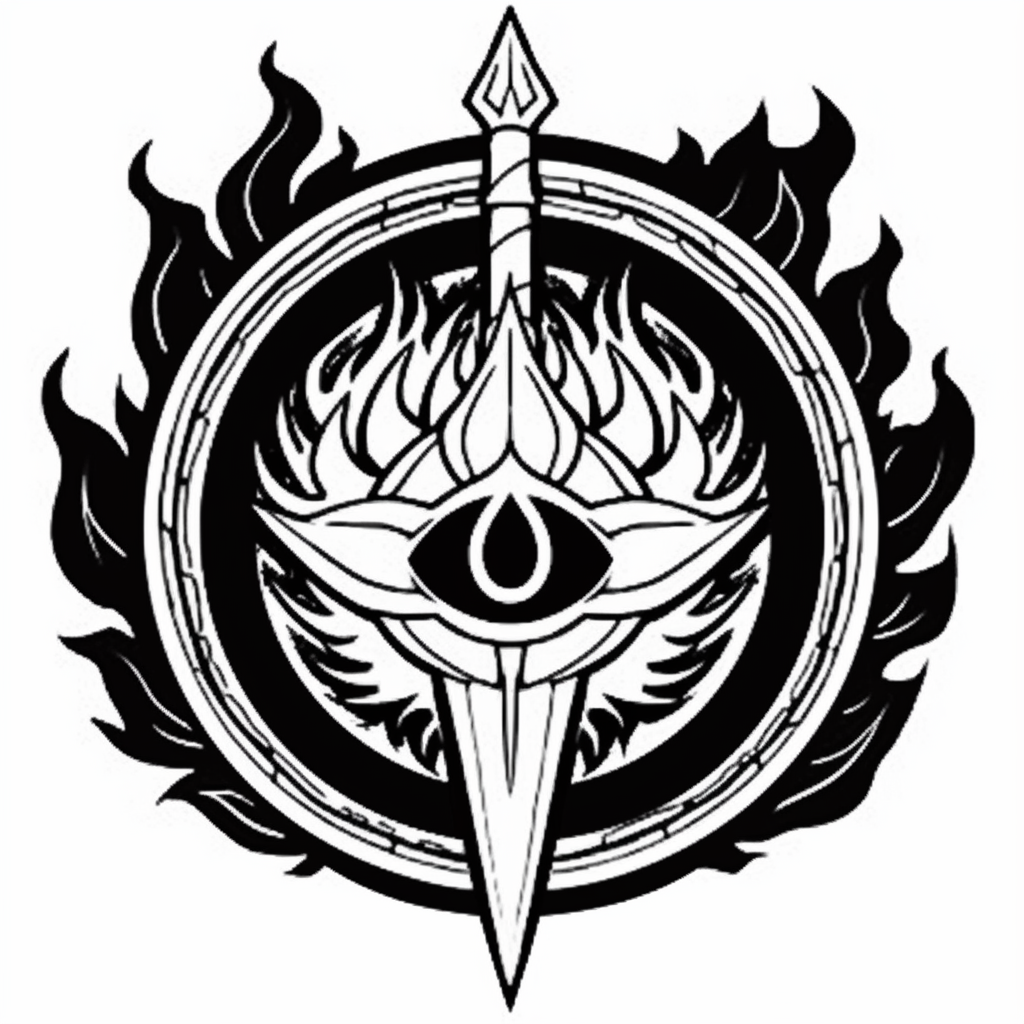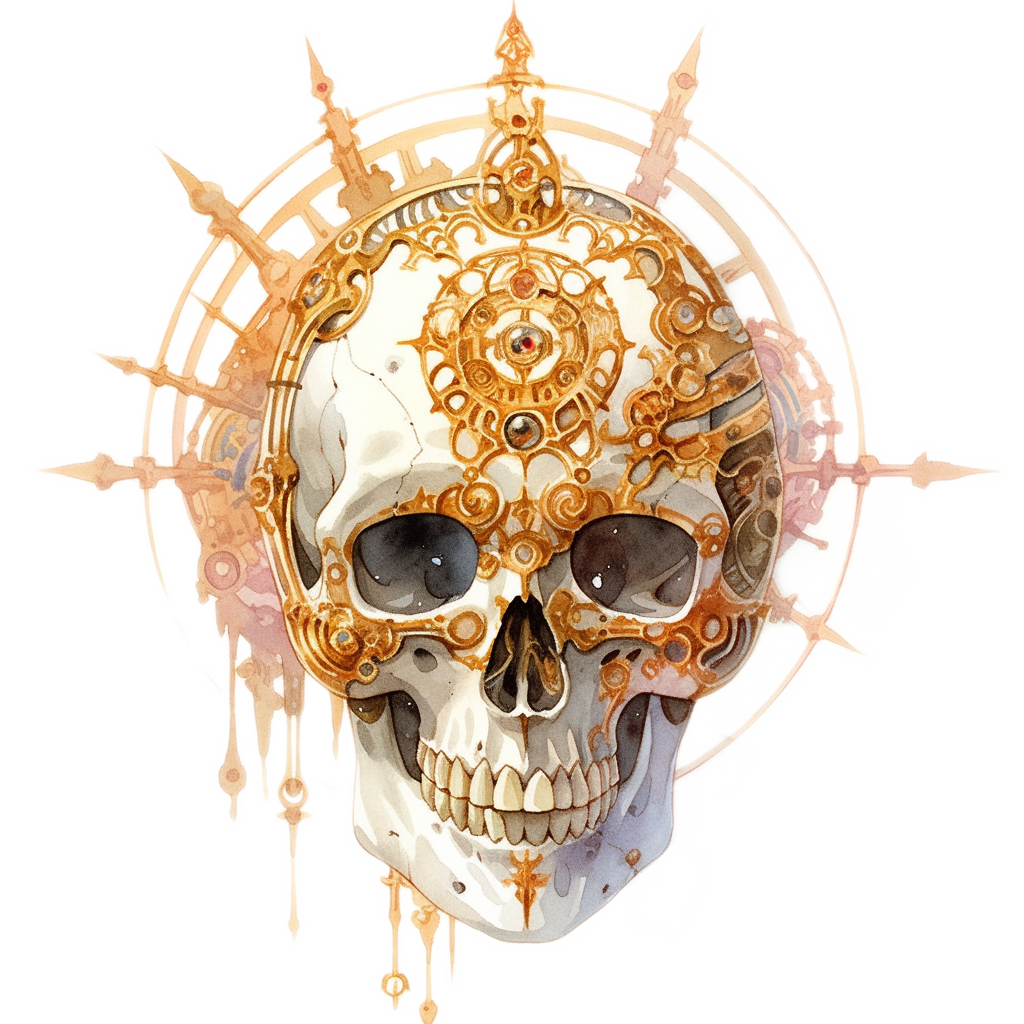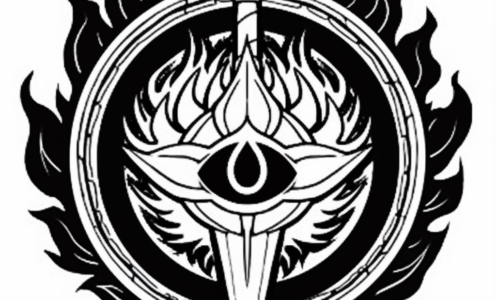The Believers of the Source

The Godsmen
Philosophy: We can all be gods
Headquarters: Sigil / Lower Ward / Harbinger House
Factol: Ambar Vergrove
Role: The Godsmen no longer run the Foundry; now the smaller number in the faction has regrouped, and focus instead on maintaining the impossible paradoxes of Harbinger House and its residents.
The Believers of the Source, or Godsmen, hold that all beings are in a continuous process of spiritual evolution, striving to ascend to a higher form of existence. This progression is seen as a series of tests, with each life or incarnation serving as an opportunity for growth.
The Godsmen see the multiverse as a testing ground for spiritual advancement, with the ultimate goal being to ascend beyond the current existence to a higher form. This belief system appeals to those who see life as a journey of continuous improvement and learning. However, it might be challenging for those who value personal freedom or question the existence of a predetermined path of evolution.
The Godsmen and Alignment
Good-aligned characters: Might resonate with the Godsmen’s focus on growth and improvement, seeing this process as an opportunity to better oneself and help others evolve at the same time. They may view each incarnation as a chance to spread kindness and compassion to different parts of the multiverse, or seek to care for the needs of fledgling powers selflessly, in institutions like Harbinger House.
Lawful characters: Folks who value order may appreciate the structured nature of the spiritual evolution espoused by the Godsmem, seeing the journey of ascent as a series of clear steps or stages to be followed. They may view the universal laws that govern this process as akin to moral or societal laws. And working out what the hidden patterns in existence are, in order to improve. If you follow all the rules, you’ll pass all the tests of the multiverse.
Chaotic characters: May struggle with the idea of a predetermined path of evolution, preferring to believe in the freedom to carve their own destinies. They might resist the notion of a cosmic plan or order dictating their spiritual journey, preferring to forge their own path. They judge events on a case-by-case basis; sometimes folk need a helping hand, other times a kick up the backside. These cutters are also the most likely to abandon the organisation of the faction itself, and strike out alone looking for their own ascension.
Neutral characters: Could appreciate view the Godsmen’s philosophy as a balanced approach to existence, acknowledging the importance of seeking their own personal growth while recognising that the path to ascent might vary for each individual.
Evil characters: These bashers may well interpret the Godsmen’s philosophy as a justification for their actions, perceiving their deeds as part of their own evolutionary journey. They might see their ascent as a path to greater power or domination over others, or seek to prevent others’ progression towards godhood.
Real-World Philosophical Parallels
The philosophy of the Believers of the Source centres around the idea of spiritual evolution and ascension, positing that all beings are undergoing a process of testing and growth with the ultimate goal of transcending their current existence to a higher state of consciousness.
This belief system finds resonance with several real-world philosophical, religious, and metaphysical ideas:
The Godsmen’s belief in a cycle of life, death, and rebirth until reaching a higher state of being closely mirrors concepts of reincarnation and transmigration found in Hinduism, Buddhism, Jainism, and other religious traditions. These beliefs hold that the soul undergoes a cycle of successive lives and its next incarnation is dependent on the actions (karma) of the previous life.
Evolutionary spirituality is a modern metaphysical concept which posits that spirituality can evolve and that people are in a continual process of spiritual development. This idea aligns with the Godsmen’s belief in the spiritual ascension of beings toward a higher existence.
The concept of theosis, particularly in Eastern Orthodox Christianity, involves the belief in attaining divine nature or becoming godlike through spiritual practices. This resembles the Godsmen’s belief in beings evolving and ascending to higher forms, potentially even becoming deities themselves.
Process theology is a philosophical and theological doctrine suggests that reality is constantly evolving and that God is not an omnipotent, unchanging entity but rather is also developing along with the universe. This idea of a dynamic, evolving spiritual reality has parallels with the Godsmen’s view of the multiverse as a testing ground for spiritual growth. It could be seen as a blending of the philosophies of the Athar and the Godsmen.
In Neoplatonic thought, especially in the works of Plotinus, there is an emphasis on the soul’s journey and return to the One, the ultimate source of all reality. The idea of a hierarchical ascent toward a union with the One echoes the Godsmen’s belief in ascension and union with a higher existence, or Source. Building on this, the Godsmen’s focus on individual beings finding their path and purpose in a vast, complex multiverse touches on existential themes. Existentialism explores the individual’s search for meaning and identity in an indifferent or absurd universe.
Source: Jon Winter-Holt, mimir.net, inspired by dirt_the_cook of the Unofficial Planescape Discord

